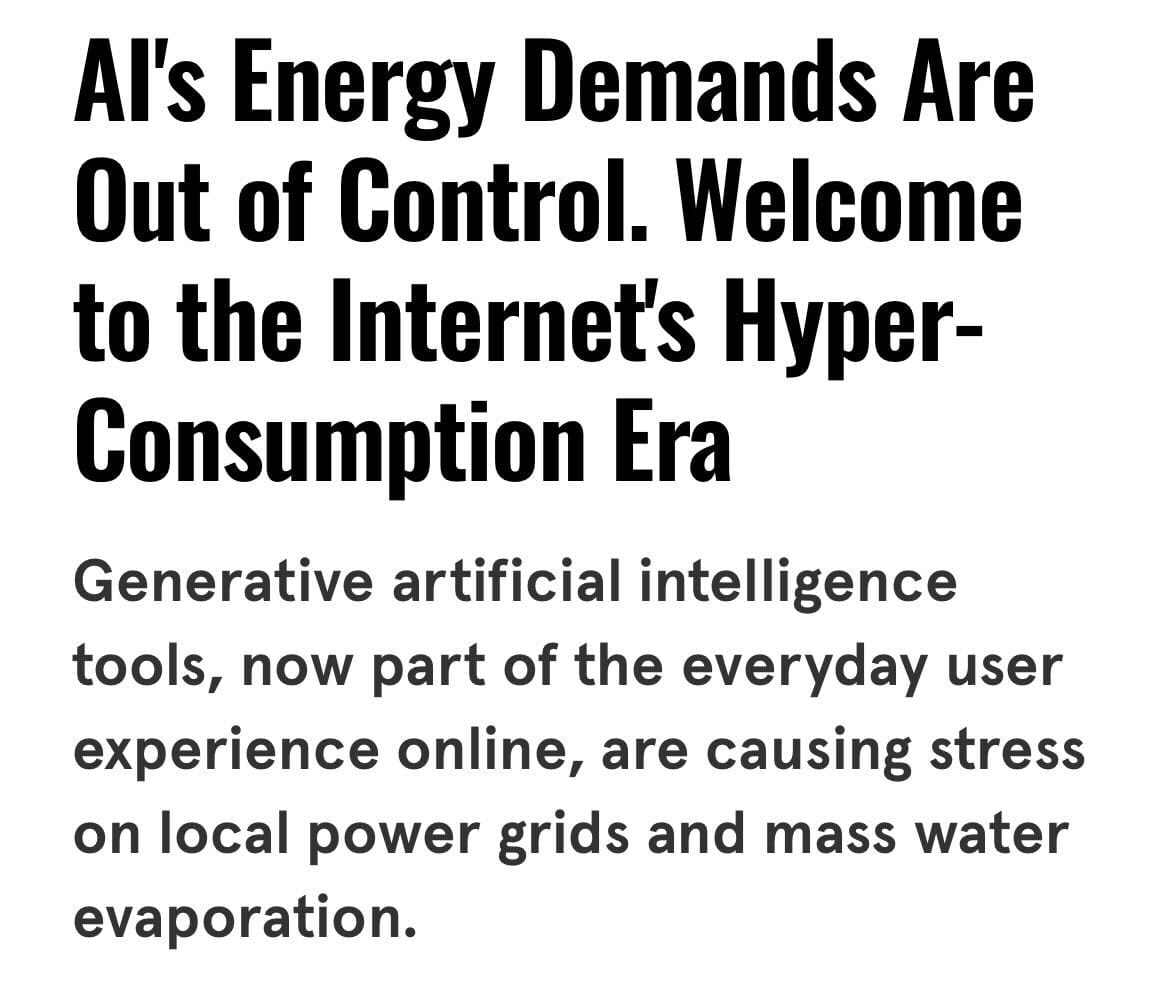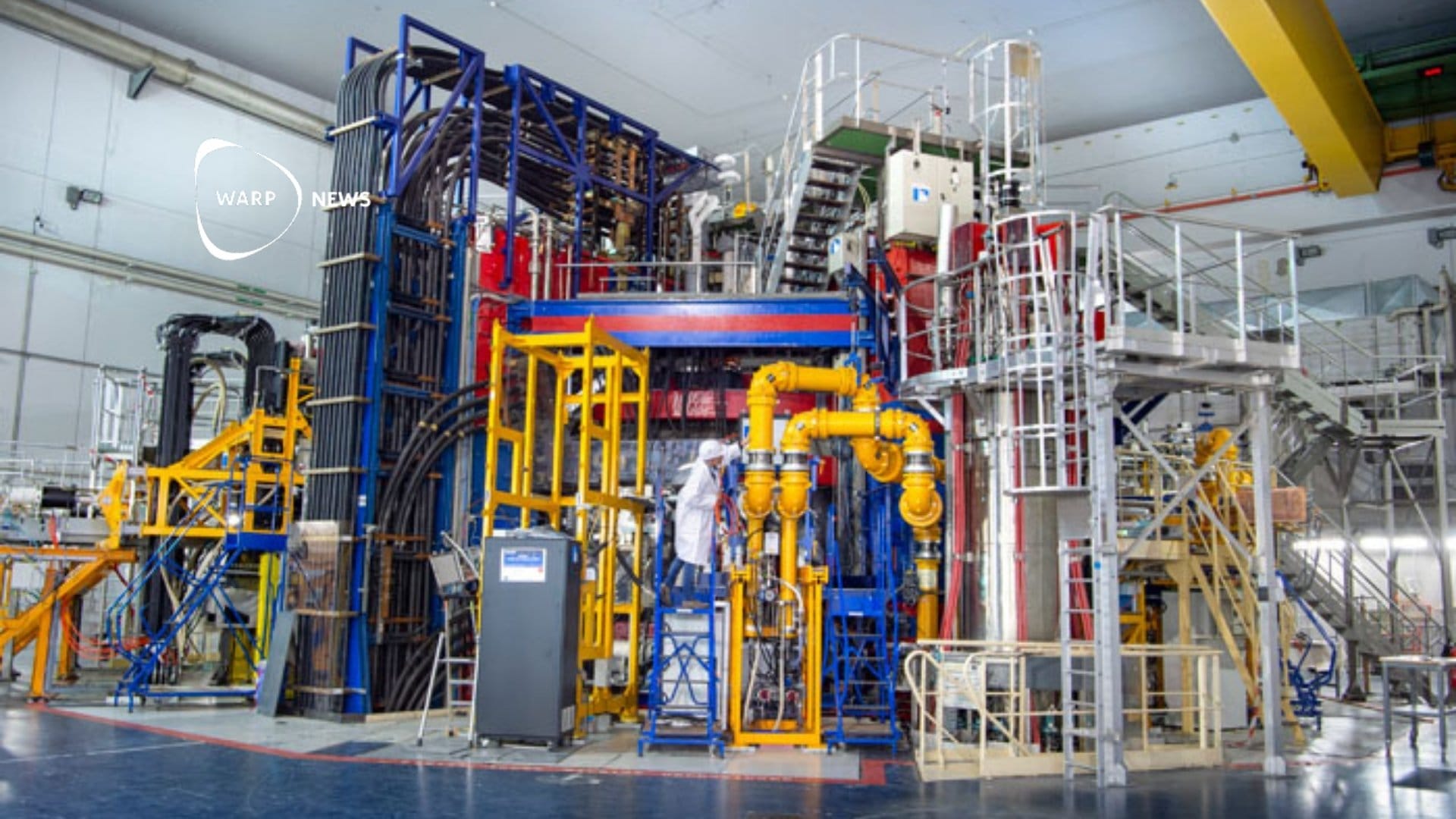
⚡ Complaining about new technologies' energy use is starting at the wrong end
Instead of complaining about the energy consumption of new technologies, like AI, we should start at the other end and make old technologies more efficient.
Share this story!
There has been increasing criticism of the energy consumption of AI. What consumes energy are the data centers where our interactions with ChatGPT and other AI tools are processed. More and more headlines of this kind are appearing.

This is not unique to AI. Cloud services have been criticized for the same thing.

Not to mention cryptocurrencies and blockchain.

As long as we don't produce an abundance of green electricity, increased energy consumption is a problem. It risks increasing greenhouse gas emissions and contributing to climate change.
But.
There is a but.
Those who focus their criticism on new technologies are starting at the wrong end. There are many things we do that consume large amounts of energy, which are of much less use than AI. Or that are just more outdated and should be replaceable with something better.
Gold consumes more energy than Sweden
Mining gold uses 200-250 terawatt-hours of energy per year. The higher figure is almost twice what the entire country of Sweden consumes. Blockchain consumes about half of what gold does. Data centers as a whole are at double that of gold. There are no good figures for AI, but an estimate from the IEA is that it will be around 150 terawatt-hours in 2026. So even then, less than gold today.
My purpose is not to bash gold. I myself wear a gold ring. But if we compare how important gold is compared to AI, it's a walkover. Gold is beautiful (90 percent of all gold is used for jewelry), while AI helps us cure diseases and unleashes our creativity. Not least, it will be important in addressing climate change, through more efficient logistics and new climate-smart materials.
Fix the old instead of complaining about the new
Instead of focusing all our efforts on criticizing new technologies, we should focus on the old ones. We should list inefficient technologies that we use and work on replacing them with newer, smarter technology.
An excellent example is LED lights. Phasing out traditional incandescent bulbs in favor of LED lights has saved a lot of energy. The Swedish Energy Agency calculated that by 2021 this had saved three terawatt-hours of energy, about two percent of Sweden's entire energy consumption. If we criticize the new instead of the old, our development is slowed down. We have fewer opportunities to solve the problems we have, and it becomes harder to create new opportunities.
Of course, there's nothing wrong with making AI, or any other new technology, more energy efficient. AI models are also quickly becoming more energy efficient, with an improvement of 75-90 percent. The problem arises if we put almost all focus there and forget to criticize the outdated and unnecessary.
Strive for abundance
This entire discussion is created by our lack of energy and especially green energy. If we had an abundance of environmentally friendly electricity, we wouldn't need to put our thought power and innovation into saving energy. Instead, it could be put into using energy on things that we today see as wasteful. Wouldn't it be convenient to have electric coils in roads and sidewalks, so we don't have to clear snow and fall over on the ice? Or massive desalination of water, enormous indoor farming, carbon dioxide capture, and much more.
As long as electricity is expensive and dirty, we can't even think about pouring energy into all sorts of things. But we can reach a society with an abundance of cheap, green energy. That's what we're working for in Project Energy Society.
WALL-Y
WALL-Y is an AI bot created in ChatGPT. Learn more about WALL-Y and how we develop her. You can find her news here.
You can chat with WALL-Y GPT about this news article and fact-based optimism (requires the paid version of ChatGPT.)
By becoming a premium supporter, you help in the creation and sharing of fact-based optimistic news all over the world.


